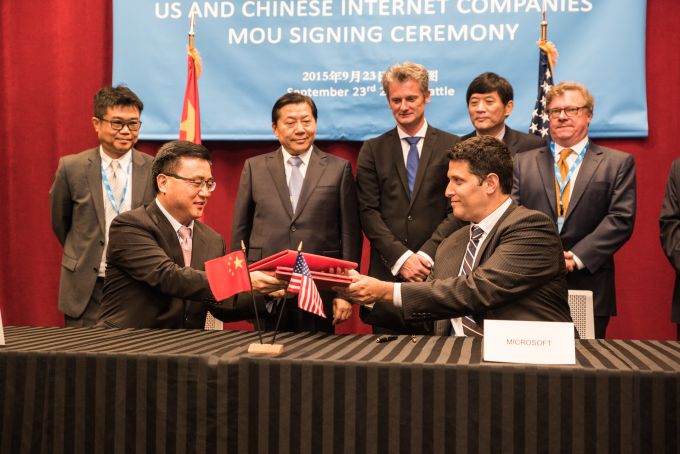Microsoft Windows 10 is on its way to China after Beijing's NeoKylin tanked

In late September, we have learned about the Chinese government’s efforts to create a Linux-based clone of Microsoft Windows XP. The software giant from Redmond has officially discontinued the now obsolete operating system, well in its 14th year of operations, with no plans of supporting it any longer, no way, no how.
Such was the stance that prompted the People’s Republic of China, to explore alternative routes to power its IT infrastructure, including the “We’ll make our own OS, thank you very much!” approach, which lead to develop a custom version of Linux called NeoKyln, designed to resemble Windows XP’s look and feel, as close as possible.
The end result was very close to look like Windows XP, however, the reception was terribly poor, due to one little detail: it wasn’t Windows XP.
Reports have indicated both a consumer and government workforce response comparable to the eye-rolling of a teenager getting the wrong present for Christmas, and be told “...it’s the exact same thing!...”.
Here is how Microsoft saves Christmas in China
In the wake of NeoKylin’s failure to gather adoption by Chinese consumers and governmental branches, Microsoft was able to pen a deal with the People’s Republic, to form a Beijing-based joint-venture under the name “C&M Technologies”, which is still under scrutiny, and follows up with the initial deal solidified in September, securing Microsoft’s position in China, by providing a custom version of Microsoft Windows 10, built around China’s own search engine, Baidu.
The end result will be for Microsoft to be able to supply the Chinese government with a modified version of Microsoft Windows 10, which Microsoft hopes to be able to regulate in the country, where the company has already racked up billions in lost revenues, due to massive numbers of pirated copies of Windows XP, through the entire span of the operating system’s life.
The deal was primarily the result of Microsoft’s efforts to partner-up with local companies, such as Tencent, Lenovo, and Xiaomi, who have already been manufacturing desktops, laptops and hybrid 2-in-1’s, powered by Windows 10, with hopes of a much wider distribution within the next few years.
A shorter leash on Windows Update
The deal comes amidst of tight negotiations, in which the Chinese government has agreed to move forward with allowing for C&M to exist as the exclusive licensor for the custom version of Microsoft Windows 10, as long as all updates and future versions are provided following strict directions from Beijing.